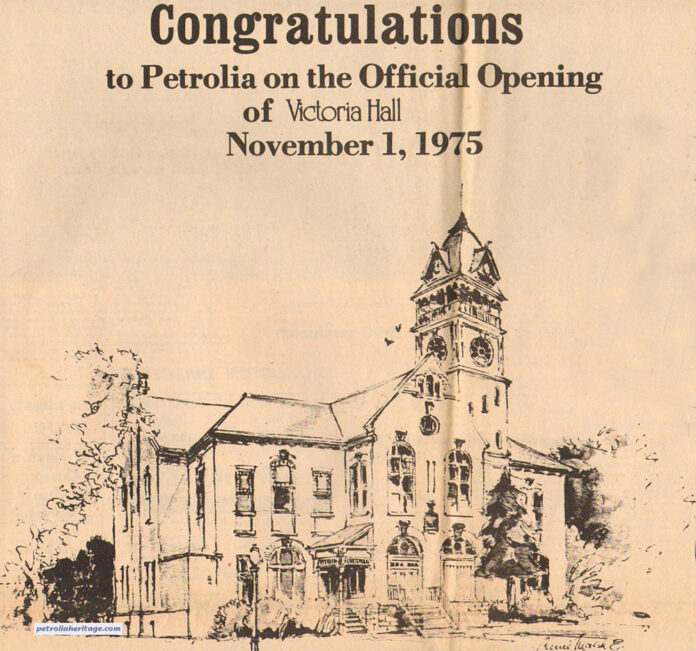
Blake Ellis/Local Journalism Initiative
Fifty years ago a teacher from Queen Elizabeth II Public School had an idea to clean up an unused theatre. That clean up led to the founding of a professional theater in Petrolia which is now pumps millions of dollars into the local economy.
As the new season at Victoria Playhouse Petrolia opens Tuesday for previews of the first show of the summer season, it is hard to believe that not that long ago, the grand theatre built as an opera house for wealth oil barons stood silent for so many years.
Karen Whiting was a member of the community theatre in Petrolia 50 years ago.
Whiting believes the restoration of the theatre began when a teacher at the Queen Elizabeth II Public School toured his class through the abandoned opera house in the Petrolia Town Hall. He then requested the students be allowed to use the theatre to stage a play.
Many people were unaware of the opera house at the time, said Whiting, who wasn’t involved in the restoration but would later be a founding member of the Petrolia Community Theatre where she would be involved in costume design for 30 years.
The Advertiser-Topic in Petrolia published an article prepared by Victoria Playhouse Petrolia Coordinator Marilynn Joliffe in its Oct. 29, 1975 edition, which describes the restoration of the opera house in those early years.
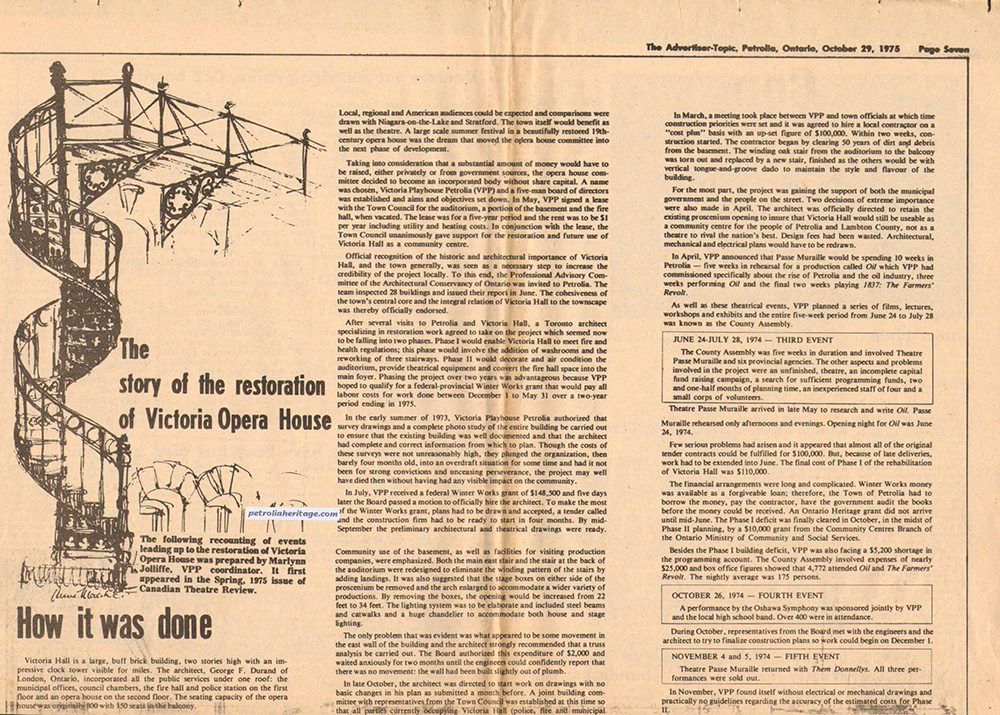
Petrolia Town Council agreed to form a committee in May 1972 to seek funding, explore uses and to make recommendations in regard to renovations of the opera house.
The Ministry of Community and Social Services agreed to pay half of the cost of a feasibility study, with the community raising the rest.
The committee gave its recommendations to council the next year in May 1973, where it became clear $100,000 would have to raised in order to bring the opera house into modern theatre requirements and regulations. The basement, which at the time was only being used for storage was also ideal for washrooms and dressing rooms.
The opera house committee was incorporated named the Victoria Playhouse Petrolia (VPP), with a five person board of directors. Ron Baker, who later retired as head librarian for Lambton County would serve as chair. The VPP signed a $1 a year lease agreement with the town council for rent, utility and heating costs.
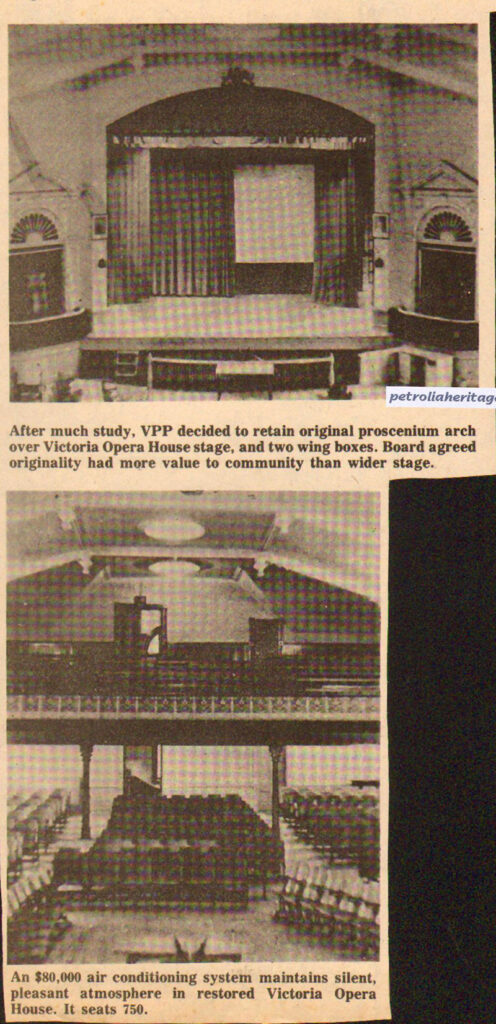
The restoration work was divided into two phases. The first phase was to allow for Victoria Hall to meet fire and health regulations, the addition of washrooms and the reworking of three stairways. The second phase would install air conditioning, decorate the hall, provide theatre equipment and convert the old fire hall space of the building into the main foyer for the theatre.
A federal winter works grant was received for $148,500 and five days later, the board hired the architect in July 1973. The preliminary architectural drawings were completed in September.
In its search for a director for the facility, the board invited many people with national and international reputations in the theatre community. One of those visitors was Paul Thompson of Toronto’s Theatre Passé Muraille who visited in October and saw the potential.
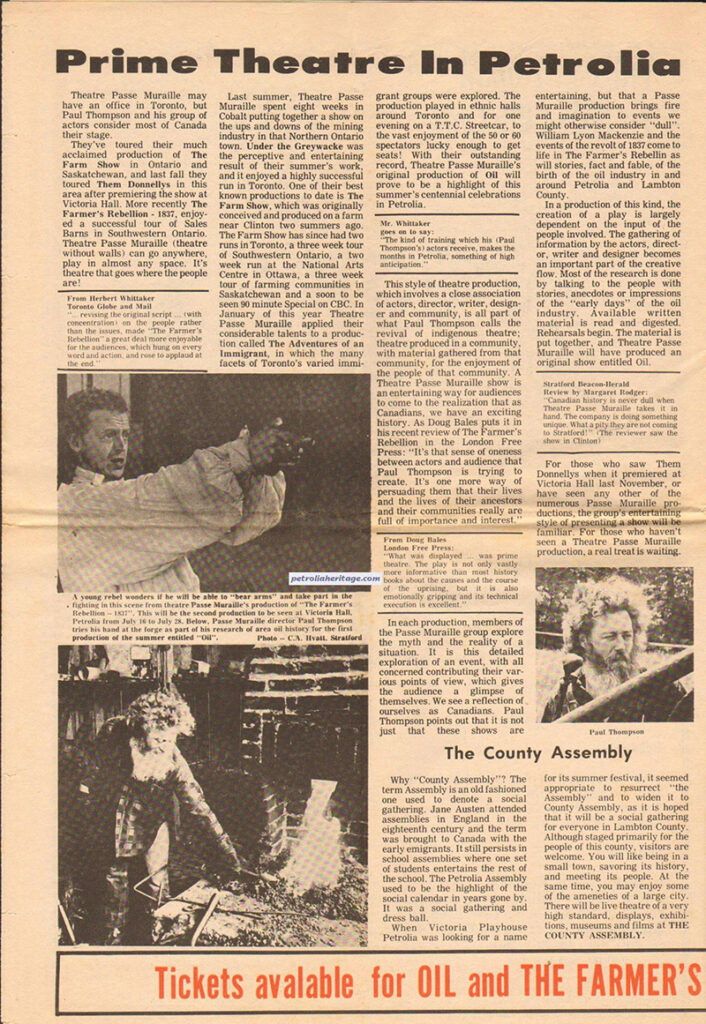
Theatre Passé Muraille staged VPP’s first production on Nov. 19, 1973 with Them Donnellys. A volunteer staff sold 1,390 tickets for three shows over nine days. The audiences were mostly Petrolians with all three shows sold out. There would be nine more events in the theatre over the next two years.
Construction priorities were set in and in March 1974, a local contractor was hired with work beginning two weeks later. The job was completed in the summer of 1975, with about $400,000 being raised, with most being spent on capital work.
An official opening of Victoria Hall was held on Nov. 1, 1975. Among the dignitaries was Lieutenant Governor Pauline McGibbon.
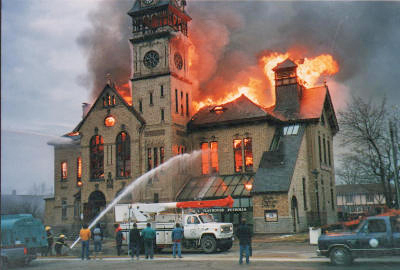
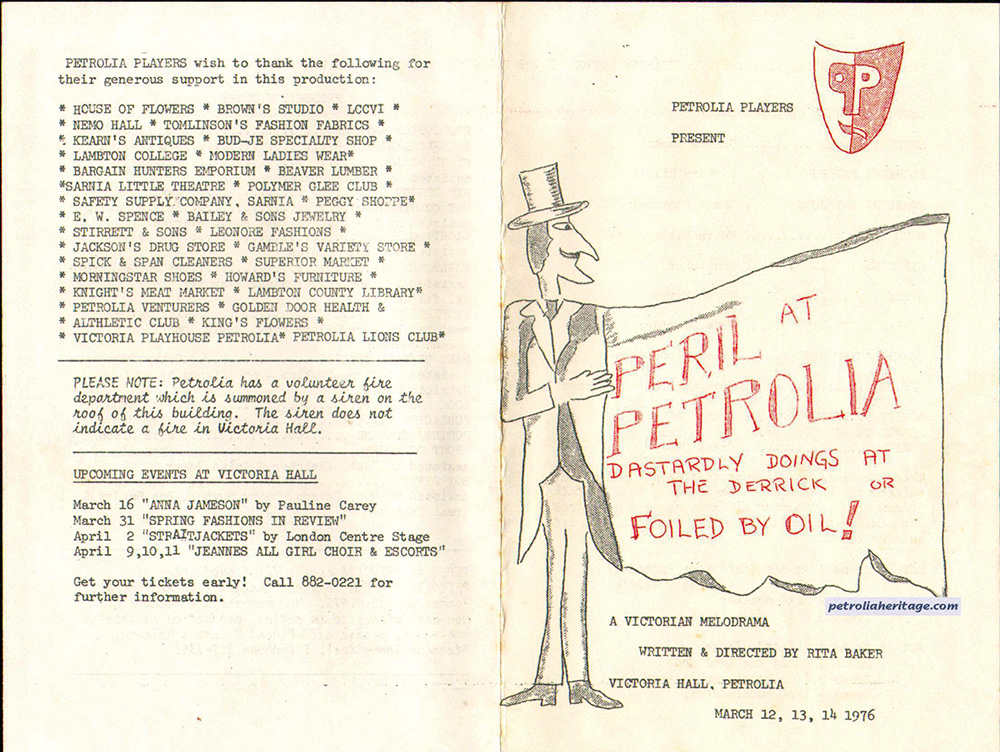
Laurissa Ellsworth, the director of marketing, arts and communications for the Town of Petrolia says over the years there were a lot of ups and downs, including the epic fire which destroyed the building in 1989. Theatre returned to Victoria Hall once it was restored.
And Ellsworth says, in the last decade, the VPP has been able not only to entertain, but to turn a profit while doing it. Some of that money has been reinvested into the theatre over the years.
There has also be financial gain for the community Ellsworth says. With up to 40,000 people coming to town for shows, money is being spent on everything from food, to gas, and even gift items. Tourism experts estimate the VPP may generates as much as $5 million per year in economic spin offs for the area.
“It’s a pretty huge impact. And for the Town of Petrolia, it’s a real pleasure right now to be to be making money and to be contributing positively to the economy,” says Ellsworth, who is marking her 25th season working at VPP.
As much as that economic spin off is important, Ellsworth says the theatre builds a sense of community as well including the 120 people who volunteer each year.
“Each of those people comes from a different background, they might be a student, they might be retired, they might live alone, they may come with a group of friends. And that alone is huge because we’re providing that connection for them to get out and socialize in our community and help us. So we appreciate them. But also, for those attending the shows, too, becomes a sense of family,” she says.
“We really missed people with a pandemic and what I heard most in the office was ‘I feel like, we haven’t seen our friends and our family for a long time.’ So that social component for patrons as well as huge.”
This year the VPP under the direction of David Rogers and David Hogan will host six shows from May to October and two Christmas programs in November and December.
- with Files from Heather Wright





